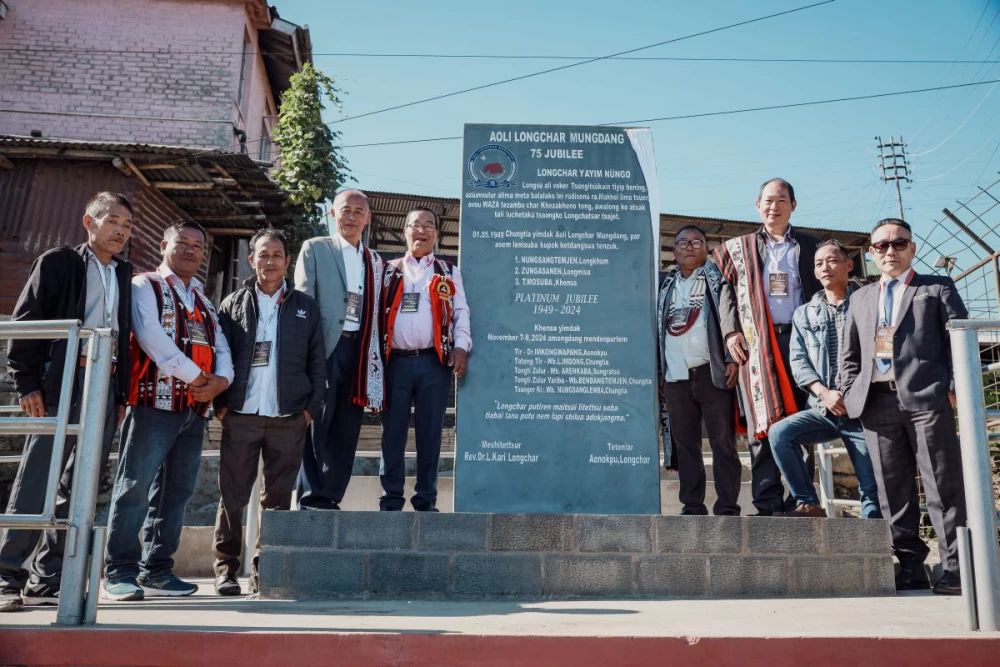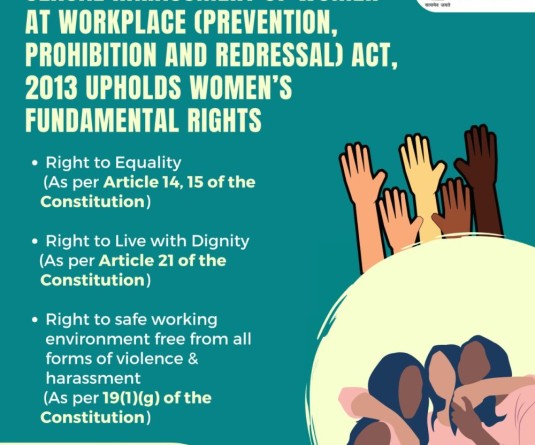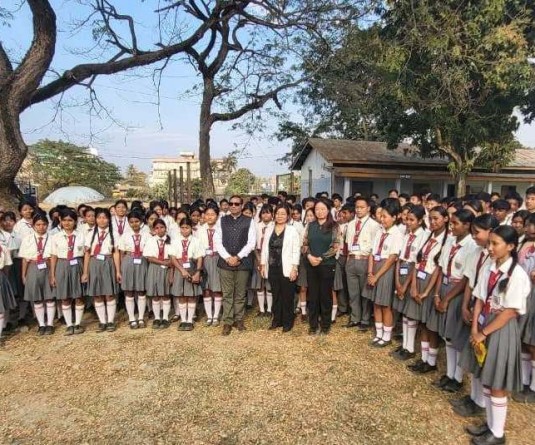Rev Dr L Kari Longchar, former Executive Secretary of ABAM, dedicates the Aoli Longchar Mungdang Platinum Jubilee Monolith at Khensa Village on Friday morning.
Morung Express News
Khensa | November 9
The Aoli Longchar Mungdang (ALM) concluded its two-day Platinum Jubilee celebrations on November 8 at Khensa village, bringing together Longchar clan members from 31 villages out of the 37 Ao villages where Longchar clan members reside. With the theme “Longchar Ayak Asingsashi” (Reinvigorating Longchar Identity), the event culminated with a call for the clan to look beyond traditional boundaries and take an active role in reshaping their identity within the larger Indian and global contexts.
The main speaker at the closing program was Sentisüngla Longchar, Assistant Professor and Teacher-in-Charge of the Department of Psychology at Lady Shri Ram College for Women, University of Delhi. Speaking under the theme “Tanü Tayongzükba tem Atena Tarutü Lima Mangdang” (“Pioneering a new frontier; envisioning a future beyond today’s challenges”), she emphasized the importance of identity and positioning oneself within the larger Indian and global landscapes.

Sentisüngla noted that while identity is a powerful anchor, it can sometimes feel limiting as the clan navigates its place in India.
She explained how symbols like the Ao shawl, traditional jewelry, and attire represent a “collective unconscious,” connecting generations through shared meaning, yet stressed the importance of expanding beyond these traditional markers. “We need to embrace both our heritage and global opportunities,” she remarked, calling for broader engagement in academia, commerce, and fields beyond the conventional.
Encouraging the clan to push boundaries, she highlighted the need to move out of “homophile comfort zones” and emphasized the transformative impact of integrating with others in academia and business. She observed the lack of Naga youth pursuing fields such as finance, economics, management, and mathematics, and encouraged parents to guide children toward diverse disciplines. Urging the community to think even bolder, she asked, “Why can’t we dream of seeing our children at the Olympics or leading in academics?” She encouraged the community to look beyond conventional goals and invest in skills necessary for international achievements. On entrepreneurship, she questioned why the community lacked a business tycoon and emphasized the need to cultivate business knowledge and skills among the younger generation.
Sentisüngla further proposed establishing a “Longchar International Scholars Association” and launching a “Longchar International Journal” which will greatly benefit the community and can preserve the clan’s history and cultural knowledge. She also highlighted the need for strong political leaders, expressing hope for a prominent Longchar leader who can advocate effectively in the political landscape. Addressing entrepreneurship, she urged the clan’s youth to explore and engage in business, envisioning a future where the Longchar clan could produce influential business figures.
The event also adopted four key resolutions, including one to research the clan’s origins and establish connections with tribes from whom they separated at Khezhakeno. Additional highlights included exhortations from I Nangshi Longchar, former ALM President, I Akang Longchar, and N Bendang Longchar, a Lirmen Village Council member and a traditional folk song was presented by Kohima Unit of ALM.






